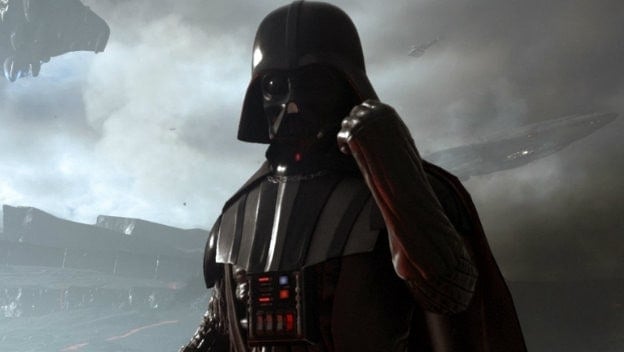If you play games, you’re well aware of Electronic Arts, and chances are you have a strong opinion about the venerable corporation that isn’t favorable. It’s won “Worst Company in America” awards. It’s been behind disastrous game launches like Anthem, Star Wars Battlefront II and Mass Effect Andromeda . On its good day, it’s the one trying to nickel-and-dime you for Madden and The Sims , and on its bad day, it’s the one running franchises like Command & Conquer and SimCity into the ground. Occasionally it publishes games like Apex Legends .
Earlier this month, a GameIndustry.biz interview with EA executive Matt Bilbey sparked the ever-present discourse about what Bilbey called “the external perception that [EA’s] just a bunch of bad guys.” It is, of course, his job to put a good spin on the company’s work, and acknowledging this perception was a way for him to highlight a program to fund smaller games. But detractors would say that these efforts are a way to distract from the behemoths that EA usually releases by getting a bit of good PR on the cheap.
So let’s talk about these egregious decisions from the supervillain corporation. EA’s definitely been accused of things in three sorts of categories: squeezing every last cent out of customers for a given game; rushing development of a game resulting in unfinished, half-baked releases; and stamping out mid-tier franchises that see more critical praise than market success. Here’s the thing about all three of those: they’re not really the fault of anyone working at EA.
Why? Because the actual bosses don’t work there. Like basically all publicly traded companies, the decision-makers at EA are judged by shareholders, and they’re judged practically only on the bottom line and practically only on its short-term quarterly reports. If you’re hired to make a number go up and you get fired if you don’t, well, you do that.

You put in anything you can to get some extra money from the Star Wars IP you paid a lot to acquire, and when Disney shoots down some of your better ideas for how to do it, you go to whatever’s next on the list. You tell development teams to do what they must to get a game out the door by the end of the fiscal year so that its earnings show up now and you can still have a job in the next one. You divert money from making a new Dead Space or Burnout that might earn a small amount of money into something like a bit of extra FIFA marketing that will make way more.
You do all these things because if you don’t, the stock price will fall ten percent in a day, and even if you think it’s the smart long-term play to make the “good” move, you certainly won’t still be there when you’re proven right.
So when Bilbey and other EA executives say they’re not “bad guys,” they probably believe that, and they may be right. Maybe initiatives like EA Originals, funding games like Sea of Solitude and Unravel , are the best they can do. Maybe making a few more gems show up in the Origin Access subscription service alongside the profitable giants is the victory. Maybe they work on the margins because it’s where work can be done, while everything else is irrevocably driven by a boss that doesn’t work in the company’s best long-term interest.
